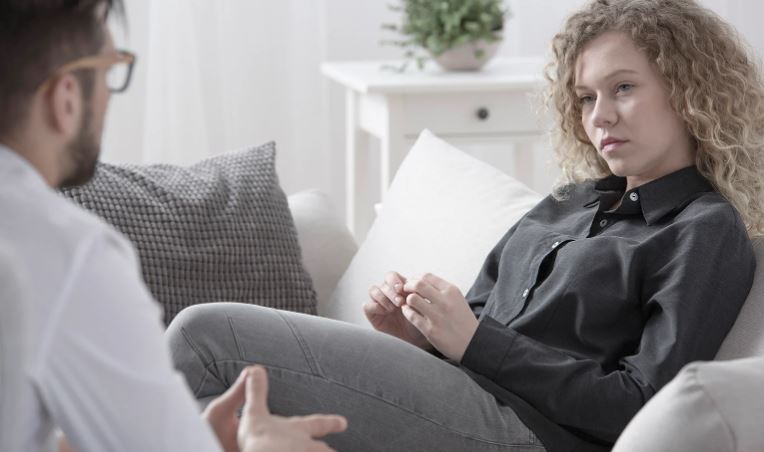
Depression is one of the most common mental health conditions, but that does not mean that it isn’t serious. It’s one of the leading causes of disability in the United States, and yet, statistics indicate that about 35% of those aged 18 and older experiencing a major depressive episode don’t get treatment. There are a number of different types of depression, all of which come with different signs, symptoms, and diagnostic criteria.
Types of Depression
Understanding depression symptoms can help you identify signs of depression in yourself and extend empathy to others. Here are some common types of depression and their symptoms.
Major Depressive Disorder
MDD is one of the most common depressive disorders. Symptoms of MDD include but aren’t limited to:
- Depressed mood
- Fatigue
- Changes in appetite
- Sleeping too much or too little
- Feelings of hopelessness or worthlessness
- Irritability
- Trouble concentrating or focusing
- Social isolation or withdrawal from others
- Diminished interest in activities one would typically enjoy
To be diagnosed with major depressive disorder, you must experience symptoms for at least two weeks in a row, and your symptoms must not be better attributed to another mental health condition.
Persistent Depressive Disorder
This is sometimes referred to as dysthymia. To be diagnosed with this type of disorder, one must experience a notably low or depressed mood lasting two years or more. Symptoms must impact a person for a significant portion of their day on more days than not. One must experience two or more of the following symptoms in addition to a persistently low or depressed mood:
- Eating too much or too little
- Sleeping too much or too little
- Fatigue or low energy
- The trouble with concentrating, focusing, or making decisions
- Feelings of hopelessness
- Low self-esteem
PMDD
PMDD refers to premenstrual dysphoric disorder, and it occurs in those who experience menstrual periods. It is not the same as typical PMS, and the impacts of the disorder can be severe. Symptoms of PMDD include but are not limited to:
- Depressed mood, self-deprecating thoughts, or feelings of hopelessness
- Anxiety, tension, or feeling keyed up and on-edge
- Sleeping too much or too little
- Changes in appetite
- Fatigue or lack of energy
- Feeling overwhelmed or out of control
- Mood swings
- Difficulty in interpersonal relationships due to symptoms
- Irritability
Someone with PMDD will experience symptoms for about a week before their menstrual period, and the symptoms will alleviate soon after their menstrual period begins. At least five symptoms of PMDD must be present for a person to receive a diagnosis.
Postpartum Depression
Postpartum depression is a type of depression that occurs after a person gives birth. Symptoms of postpartum depression include but are not limited to:
- Feelings of sadness or depressed mood
- Changes in appetite
- Fatigue or loss of energy
- Diminished interest in activities one would typically enjoy
- Restlessness, or alternatively, slowed movements
- Feelings of guilt or worthlessness
- Feeling anxious about the baby or a lack of interest in the baby
Other Types Of Depression
Other depressive disorders in the DSM-5 include disruptive mood dysregulation disorder, substance/medication-induced depressive disorder, depressive disorder due to another medical condition, other specified depressive disorder, or unspecified depressive disorder. There are also conditions such as bipolar disorder that include periods of depression as part of the criteria for the disorder. If you believe that you may have a mental health condition of any kind, see a medical or mental health professional qualified to provide a diagnosis. Someone may also experience situational depression or depression that occurs on a situational basis. Therapy or counseling isn’t just for those with diagnosable disorders, and it can help people experiencing symptoms on a situational basis as well.
How Counseling Helps
Research shows that various forms of mental health counseling or therapy can reduce depressive symptoms, and it’s effective whether treatment is conducted in person or online. It’s often an important part of treatment for those with depressive disorders, but you do not need to be diagnosed with a mental health condition to see a counselor or therapist. There’s no such thing as struggling, “too little” or “too much” to reach out for help. If you are going through a hard time due to symptoms of depression or anything else that’s going on in your life, you deserve to get the support that you need, and a mental health provider can help.
Find A Provider
Regardless of how you experience it, depression is a challenging thing to face. The truth is that anyone can benefit from therapy or counseling. A counselor or therapist can help with mental health conditions like depression or anxiety, relationship issues, stress, self-esteem, life transitions, parenting, and so much more. Online therapy options such as MyTherapist increase access to support by allowing you to access any licensed provider in your state who is on the platform and providing a more affordable way to receive care. Click here to learn more about MyTherapist, and remember that regardless of if you seek help in person or online, you are worthy of access to quality care.











